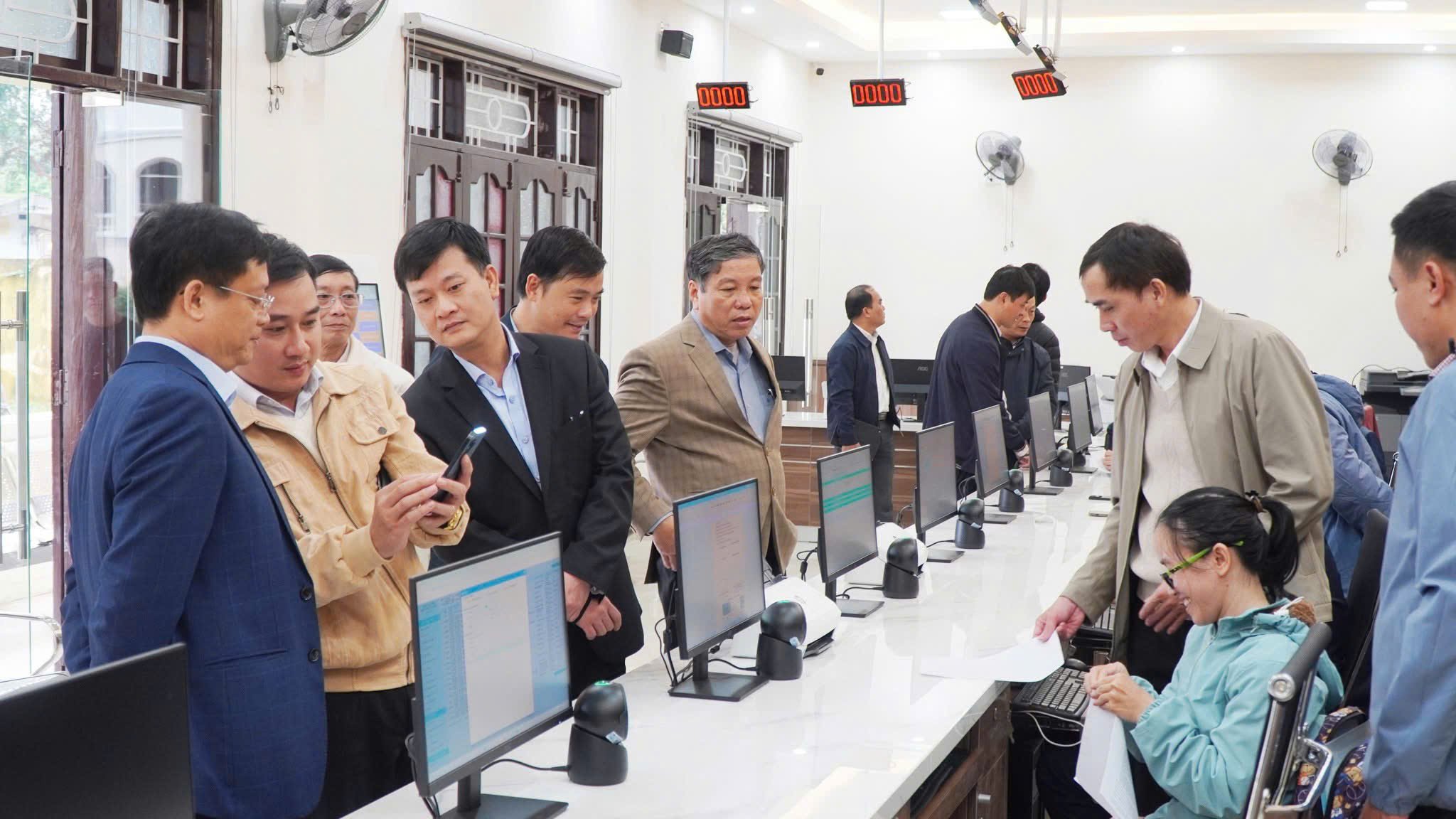 |
| The content of the draft law is a transition from administrative management to modern governance. In the photo: City leaders inspect digitalization work at public administrative centers |
This is not just a technical adjustment, but a systemic shift, from a three-tier government to a two-tier model, from administrative management to modern governance.
Rebuilding the apparatus from the grassroots
Within the framework of the 9th Session of the 15th National Assembly , the discussion session in the hall expressed views on the Draft Law on Organization of Local Government (amended). Many National Assembly deputies said that in the context of not organizing at the district level, many tasks and powers are transferred to the commune level, combined with the arrangement and expansion of the scale of commune-level administrative units (ADUs), the workload of commune-level local governments will increase significantly.
This is a major change while the organizational capacity of local government at all levels is not really uniform, it takes time. Therefore, it is necessary for provincial-level local authorities to be responsible for monitoring, supervising and having timely solutions to support and handle cases where the authorities at some or some commune-level administrative units are not capable of performing or ineffectively performing the assigned tasks and powers.
The amendment of the Law on Organization of Local Government is an unmissable opportunity to reshape the administrative system. It will not only affect the state apparatus but also shape the relationship between the government and the people for decades to come.
Delegate Nguyen Hai Dung (National Assembly Delegation of Nam Dinh Province) said: “In reality, there are two adjacent communes, within the boundaries of two provincial-level administrative units, with related issues such as dust and smoke flying from one commune to the other, river embankments in one commune causing landslides on the riverbanks of the other commune. If such incidents have to be escalated to higher agencies and levels for resolution according to the provisions of the draft law, it will be very complicated, time-consuming, and require the participation of many agencies and organizations, while these issues can be resolved by the authorities of the two communes and two provinces.”
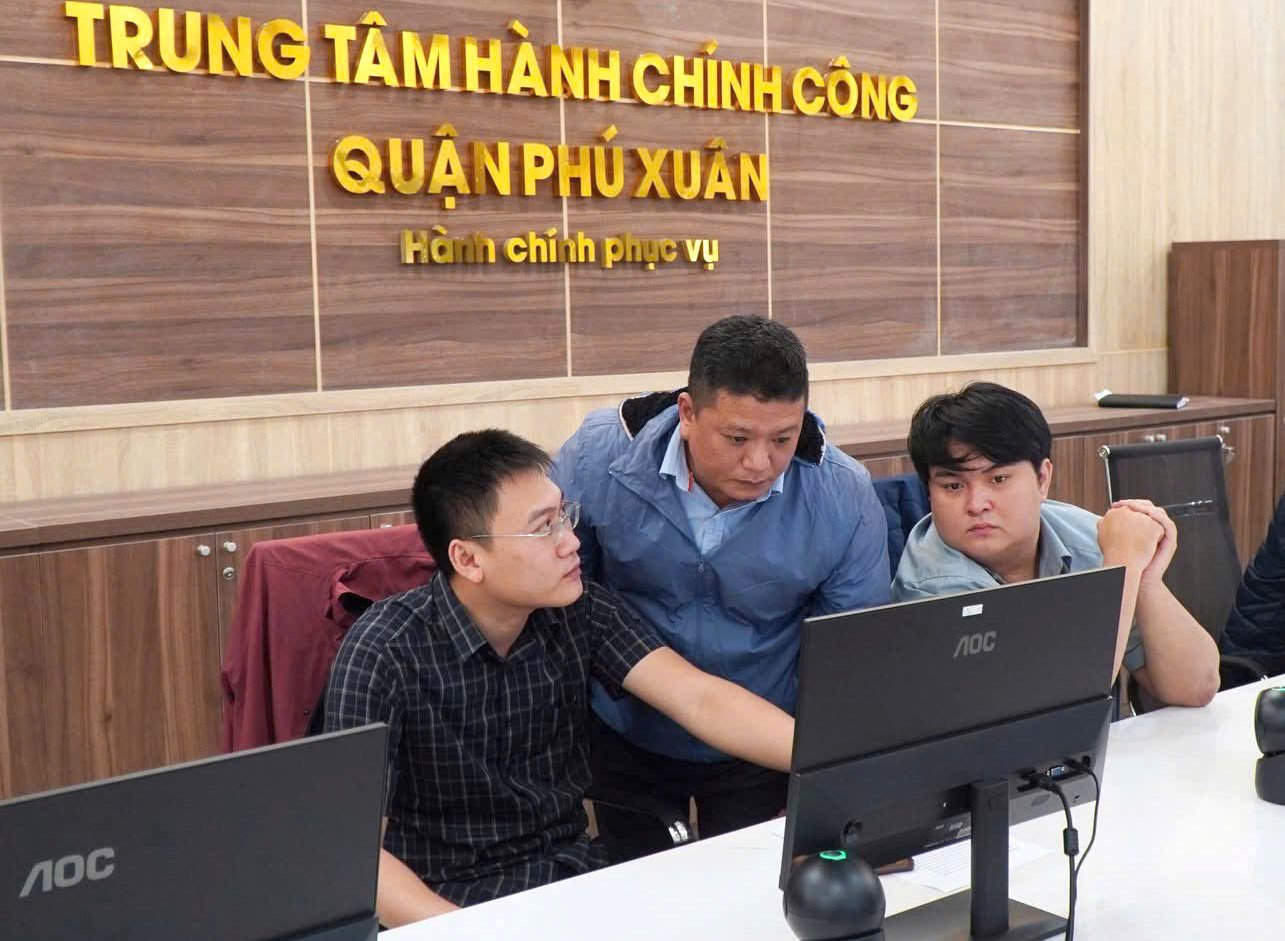 |
| When implementing the two-level local government model, staff capacity needs to be improved. |
Delegate but don't let go
In the draft law, each content of the apparatus organization must be based on the foundation of benefiting the people, serving the people better, and ensuring the people's democratic rights and supervisory rights.
The reality in Hue , the voices of voters, the opinions of lawyers, and the City People's Council, all show that the path of reform is correct, but it needs to be taken with firm steps from clear laws and with the trust of the people.
At a meeting to give comments on this draft law organized by the city's National Assembly Delegation, Mr. Ha Van Tuan, Vice Chairman of the Hue City People's Council, said that the current apparatus is large but ineffective, partly because the grassroots level has not been given enough authority. People still have to go to the district and the province to do things that communes and wards should be able to handle. The reorganization of the government needs to be linked to management practices, shifting from organization by boundaries to organization by functional blocks and development spaces.
One of the highlights of this draft law is to clarify the principle of decentralization and delegation of power, giving more authority to commune-level authorities. A new governance ideology is taking shape, not “the top does the work, the bottom waits”, but “assigning work, delegating power, delegating responsibility”.
Mr. Tuan also stated his point of view very clearly, when decentralizing power, we must "lock power in a cage of mechanisms", strictly control, and not let there be a situation where there are many people without anyone taking specific responsibility. In addition, if we want to give power to communes/wards, we must first improve the quality of cadres. We cannot let the situation of giving power to cadres who do not know what to do. We need to train, treat them appropriately, and have regular inspection and evaluation to hope for smooth operation.
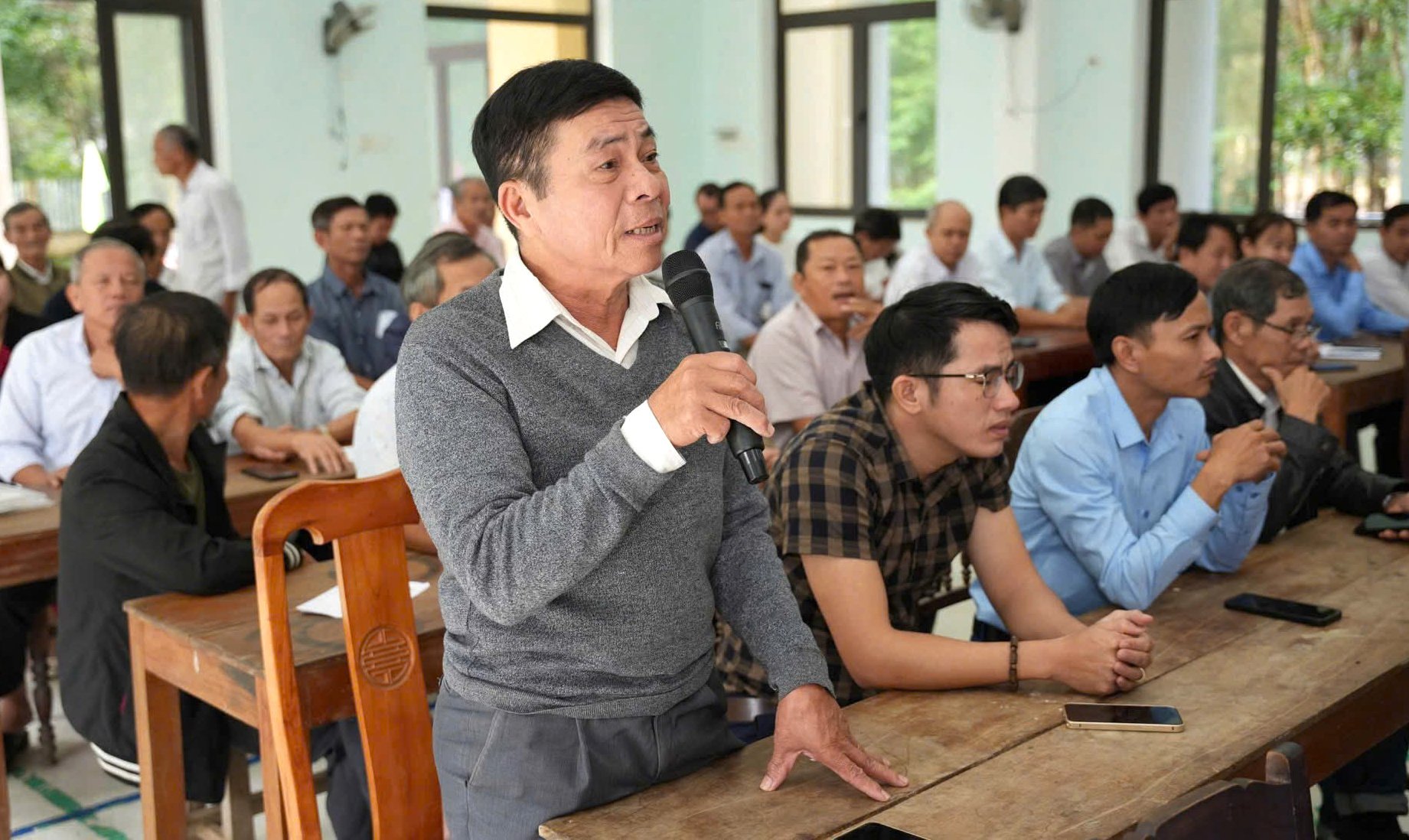 |
| Voters hope the new law will help the government work transparently, be close to the people, and listen to the people. |
Chairman of the Hue City Bar Association Nguyen Van Phuoc commented: “This law amendment is a very necessary step to meet development requirements. In particular, increasing decentralization to the commune level will help make decisions that are closer to reality and the people, thereby improving management efficiency. However, at the same time, there must be a strict monitoring mechanism to avoid abuse of power and corruption at the grassroots level.”
There are many lessons from practice. When local governments are “expanded in power” but lack accompanying control mechanisms, it can easily lead to “local separatism”, abuse of power, and even widespread petty corruption. Therefore, amending the law is not only “delegation of power” but also “setting up barriers”, so that power serves the people and not interest groups.
To understand the impact of the reform of the apparatus, no one is better than the people at the grassroots level. Mr. Nguyen Van Hung, a voter in An Dong ward, Thuan Hoa district, shared: "Giving more power to the commune is reasonable because they understand the people best; I just hope that commune-level officials have the capacity and responsibility to solve the problem quickly, don't let the "top down" keep returning to the people and waiting forever."
Meanwhile, Mr. Nguyen Minh Chau, a resident of Dong Ba ward (Phu Xuan district), has a more practical wish: "I hope the new law will help the government work transparently, be close to the people, and listen to the people; there must be a channel for reflection and supervision so that the people can have a voice; otherwise, just having a meeting and reporting is done, isn't it one-sided?"
These expectations are not lofty demands. They are the minimum needs in a democratic, rule-of-law society, to be served effectively, to have a voice and to have power monitored.
The draft law amendment being discussed by the National Assembly is not just a matter of “organizational improvement”, but an institutional breakthrough. The consistent idea is to shift from “layered government” to “functionally integrated government”; from “distributing power according to boundaries” to “delegating power according to capacity and practical needs”.
| The Draft Law on Organization of Local Government consists of 7 chapters and 54 articles, basically inheriting the organizational principles and the principles of delimitation of authority of the current Law; amending and supplementing regulations to implement the 2-level local government model, focusing on 4 groups of issues: Amending regulations related to the delimitation of administrative units and organization of 2-level local governments; amending regulations on promoting decentralization, delegation, authorization and tasks, powers of local governments at provincial and communal levels; amending and supplementing regulations on organization of local governments; on the effectiveness of implementation and resolving arising issues related to the conversion of the local government model from 3 levels to 2 levels. |
Source: https://huengaynay.vn/chinh-tri-xa-hoi/theo-dong-thoi-su/mo-duong-cho-mo-hinh-lam-viec-minh-bach-gan-dan-nghe-dan-153803.html




![[Photo] General Secretary To Lam works with the Central Inspection Commission](https://vphoto.vietnam.vn/thumb/1200x675/vietnam/resource/IMAGE/2025/5/22/54820e91fd124c4cb691961718c4ee5d)
![[Photo] Determining the pairs in the team semi-finals of the National Table Tennis Championship of Nhan Dan Newspaper](https://vphoto.vietnam.vn/thumb/1200x675/vietnam/resource/IMAGE/2025/5/21/eacbf7ae6a59497e9ae5da8e63d227bf)

![[Photo] Prime Minister Pham Minh Chinh attends the groundbreaking ceremony of Trump International Hung Yen Project](https://vphoto.vietnam.vn/thumb/1200x675/vietnam/resource/IMAGE/2025/5/21/ca84b87a74da4cddb2992a86966284cf)






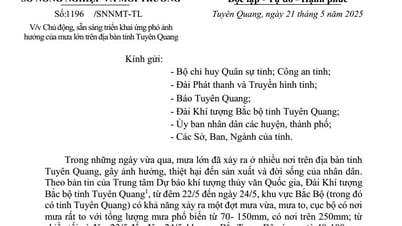













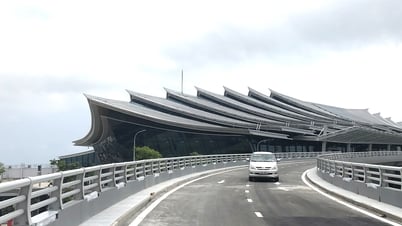

![[Photo] Prime Minister Pham Minh Chinh chairs the Government's special meeting on law-making in May](https://vphoto.vietnam.vn/thumb/1200x675/vietnam/resource/IMAGE/2025/5/22/1c880aae96fd4e0894abc47a46fe19ba)
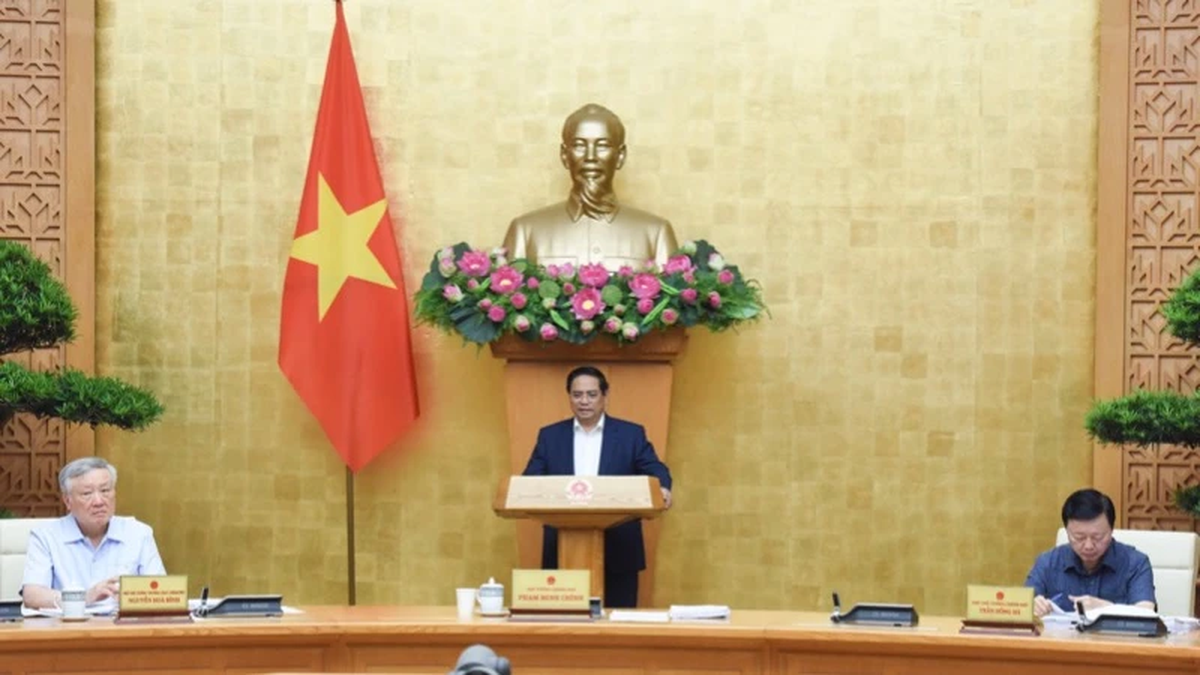


































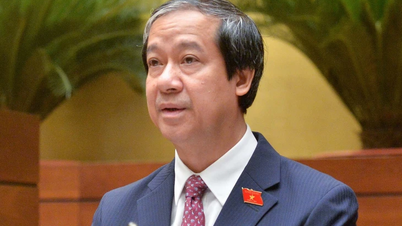

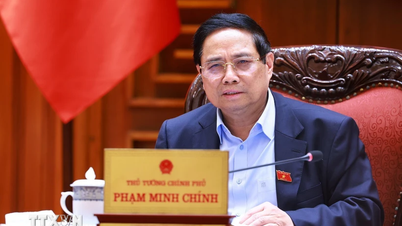


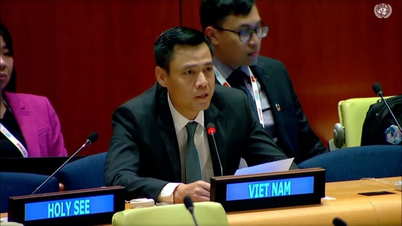
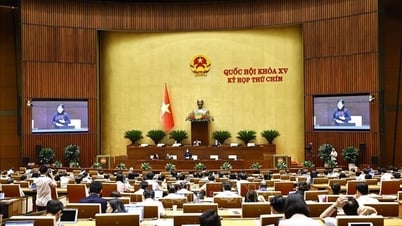

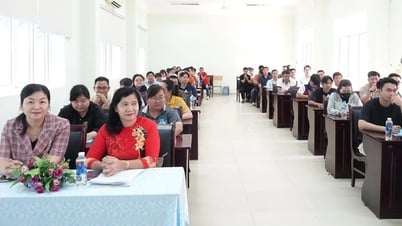





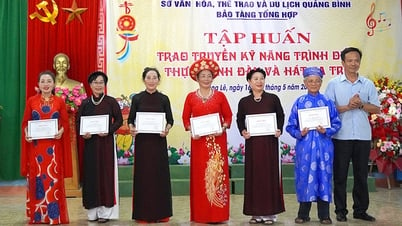










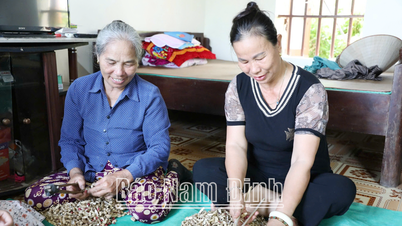








Comment (0)